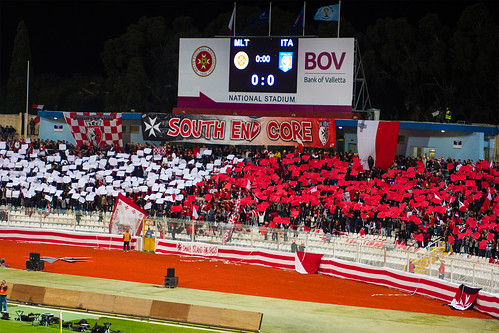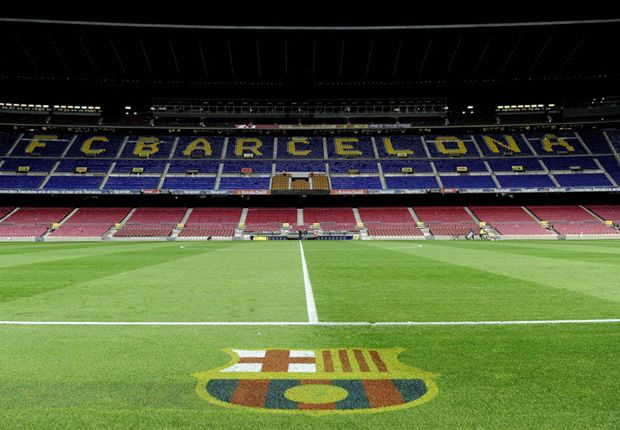Id-diskussjoni fuq il-bidliet f'ċertu aspetti tat-tmexxija tal-futbol Malti qanqlet reazzjoni qawwija, għallinqas jekk niġġudika mill-kummenti fuq Facebook.
Dan id-dibattitu qed insibu vera interessanti. Fl-aħħar qed niddiskutu 'l fejn irridu mmorru. Ma naqblux, ma jimpurtax, imma essenzjali li jinqsmu l-ideat.
Dan hu tentattiv biex id-diskussjoni tkun ftit aktar infurmata. Se nipprova nkun oġġettiv kemm jista' jkun u nżomm mal-fatti. Mhux faċli tillimita ruħek li ma toffrix il-veduti tiegħek, imma se nipprova (u mhux se jirnexxieli).
1. Ir-riforma mhix biss fuq in-numru ta' barranin fil-Premier (jew fid-diviżjonijiet l-oħra).
Il-proposta li jkun hemm 8 barranin fil-Premier ġejja mill-kumitat li jirrappreżenta l-klabbs tal-Premier. Din trid tiġi approvata mill-Kunsill tal-MFA (jiġifieri l-klabbs kollha u member associations bhal dawk li jirrapprezentaw lill-coaches, amateur leagues, referees, youth football, football f'Ghawdex, ecc.).
2. Ħafna mill-kritika li nara kontra l-MFA nsibha kemxejn sgwidata. Ħa nispjega.
L-MFA għandha President u Viċi Presidenti eletti (iva, mill-klabbs u l-member associations). Għandha wkoll segretarjat immexxi mis-Segretarju Ġenerali. Dawn flimkien jagħtu direzzjoni, bħal fil-każ tar-riforma kollha li qed niddiskutu.
Id-deċiżjoni aħħarija hija tal-Kunsill jew tal-Laqgħa Ġenerali. Jingħad spiss li peress li l-Kunsill u l-Laqgħa Ġenerali huma magħmulin minn rappreżentanti tal-klabbs, mela allura huma dawn li jiddeċiedu kollox.
Minnu. Hemm raġuni għal dan. Idealment, il-forum li jiddeċiedi jkun jinkludi fih l-istakeholders kollha tal-logħba, imma mhux bilfors kulħadd rappreżentat indaqs. Jekk dan hux tajjeb jew ħażin nistgħu niddiskutuh fit-tul ukoll, imma l-ħsieb tiegħi hawn hu biss li nagħti stampa tal-affarijiet kif inhuma.
3. Inutli nħambqu li fl-aħħar mill-aħħar tort tal-klabbs ("għax huma jiddeċiedu"). Mhux billi naspiraw li l-players isiru professjonali, jekk il-klabbs stess li jimpjegawhom m'humiex. Għall-kuntrarju l-klabbs huma x'aktarx l-aktar ħolqa dgħajfa fil-katina - mhux daqstant għax m'hemmx nies validi jmexxuhom, imma proprju għax huma mmexxija fuq bażi volontarja.
Dan irridu nżommuh f'moħħna meta per eżempju nitkellmu fuq amministraturi full-time (jew part-time) fil-klabbs. Min se jħallashom? L-unika triq li nara hija li jkun hemm pooling tar-riżorsi - u l-unika pool huwa l-MFA. Imma forsi hemm ukoll soluzzjonijiet oħra int he long term.
Veru li mhux sew li xi players jispiċċaw imxekkla milli jiċċaqalqu minħabba l-flejjes li kultant jintalbu għalihom. Veru li jekk klabb irid iżomm il-plejers tajbin tiegħu għandu joffrilhom kuntratt u mhux iżommhom miegħu minħabba xi dritt divin li jkollu. Imma xi ħadd irid jistaqsi: minn fejn ġejjin il-flus? Liema klabb Malti jiġġenera l-flus b'mod li jiffinanzja l-operat tiegħu b'mod sostenibbli? Sponsor jiġi u jmur. President ġeneruż jiddejjaq u jitlaq. L-ebda klabb f'Malta ma jiġġenera biżżejjed, sempliċiment għax kważi impossibbli - ħadd ma jista' jibdel l-economies of scale tagħna.
Jekk m'hemmx minn fejn, inutli nittamaw li l-player jilgħab fuq bażi professjonali. X'aktarx qed nippruvaw nirregolaw livell li lanqas biss ilħaqnih. Bir-regolamenti biss ma nsirux professjonali (inneħħux il-parametri, is-salary capping, eċċ, eċċ.).
Tant biex nagħrfu nkunu ftit aktar realistiċi.









